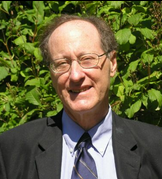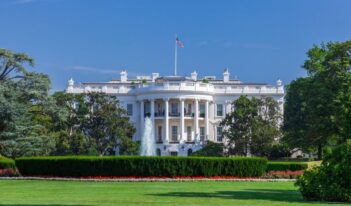
The best chances for the continuation of Jim’s tradition exist among public administration and public policy scholars more than among political scientists.
It is a sad fact that the tradition Jim Wilson represented in political science – the study of government organizations that took them seriously both as organizations and as parts of the political system – has largely died out in the discipline. There are a few exceptions – one thinks of Dan Carpenter at Harvard, John Brehm at Chicago, Gary Miller at Washington University, and a few younger public administration scholars in political science departments such as Dave Lewis at Vanderbilt or Andy Whitford at Georgia. But the field in the political science subdiscipline of American government often called “bureaucracy” (the title of Jim’s wonderful book and his old undergraduate lecture course at Harvard) has shrunk considerably.
The dominant group within political science who profess interest in government organizations are really interested in the question of how Congress influences or even controls agencies, reducing them to epiphenomena. Very few take the behavior of government organizations seriously in its own right. We have instead two other groups of scholars who study organizations. One is the many scholars who study organizations in general but not government organizations in particular (the “organization behavior” people at business schools). The other is people who study public administration, a group of scholars whose research is getting stronger by the year – and who are the closest to Jim’s successors – but still part of a field that is weak and not even present at most of the best universities.
This situation is unfortunate, because obviously these organizations are an important, and frequently underperforming, part of our system of government, so it would be good to increase the amount of good empirical research and theory about how one might improve their performance – though I say this realizing that Jim himself vigorously resisted any move to translate or apply the political science he practiced into managerial prescription.
What happened? The short answer is I’m not sure, but I have some thoughts.
Probably at least a little bit of the answer is that a fair number of Jim’s students abandoned political science and thus failed to produce doctoral students of their own to continue his tradition. I went to a public policy school, John DiIulio stopped studying American government, and became more of a practitioner than a researcher. Bob Katzmann went to law school and Brookings, and later became a federal judge.
But I think there are deeper reasons as well. One is the growth of the so-called “rational choice” strain in political science – the approach informing the work of the political scientists studying congressional control of agencies. One is less likely to take government organizations seriously if one holds the self-interest assumptions about behavior in the public sphere that characterize “rational choice.” Their special characteristics have been removed – they become like any organization, albeit shaped by political and political-institutional incentives. Jim taught us to take a sympathetic view of the people working in government as people – think of Varieties of Police Behavior or The Investigators, and of his encouragement to go out and poke around inside agencies. I remember as a grad student, with rational choice just beginning to appear in political science, Jim musing about changing the line in the Lord’s Prayer to “lead us not unto inducement,” suggesting that rational choice people ignored people’s moral sense – a theme to which he of course later returned in his book of the same title. I think in this regard that the growing study inside public administration of “public service motivation” and its influence on the behavior of people in government organizations is closer – though Jim would probably have regarded it as a bit too sanguine – to Wilson’s spirit than is much of contemporary political science.
The second reason, I think, is that it is difficult to study government organizations in Jim’s spirit using the kinds of modern quantitative techniques that have grown in importance in political science. Here I will confess to being more sympathetic to the changes in political science than I am about the “rational choice” turn, but I also recognize the problems this has created for the continuation of Jim’s tradition. Sometimes large-N quantitative research in Jim’s spirit of empirical investigation of what goes on inside government organizations can be done using existing datasets – I think of the work (by people such as Dave Lewis) that uses PART scores of agency performance developed by OMB as a dependent variable, or of my paper with John Friedman using British National Health Service data to look at the impact of performance measurement on hospital performance. It is also possible, but very resource-intensive, to develop new datasets – such as Cary Coglianese’s work on negotiated rulemaking or my ongoing work on managing local-government interagency collaborations in England. And in some circumstances one can use surveys of civil servants, including existing datasets such as the Federal Human Capital Survey conducted by the Office of Personnel Management, though these have significant limitations.
But Jim himself did not use quantitative methods, and his research style involved the sorts of case studies that, to a significant extent and for good reason, are out of favor in contemporary political science. The kinds of questions about organizations that modern quantitative techniques, including lab experiments, are best-suited to answer are the much more micro questions about the behavior of teams or smaller groups inside organizations that many business-school based scholars study. Jim was not uninterested in such questions – his old Harvard “Bureaucracy” course used a good deal of the more micro literature of that era. But he was also interested in bigger questions about government agencies.
Other than expressing a sense of loss about Jim’s tradition, I’m not sure if I have a solution. I am guessing that the best chances for the continuation of Jim’s tradition exist among public administration and public policy scholars more than among political scientists. Jim wouldn’t have been happy, I don’t think.
This essay is part of the Penn Program on Regulation’s online symposium, Remembering James Q. Wilson.




